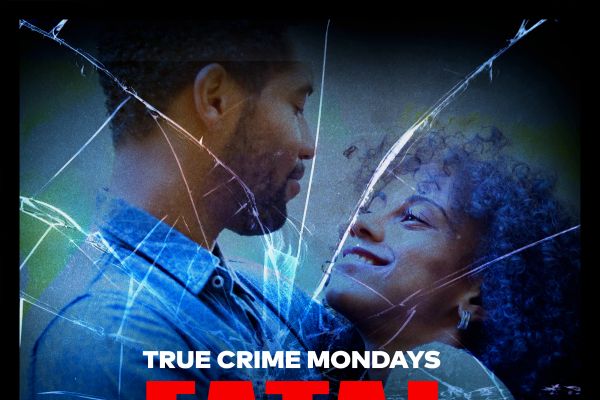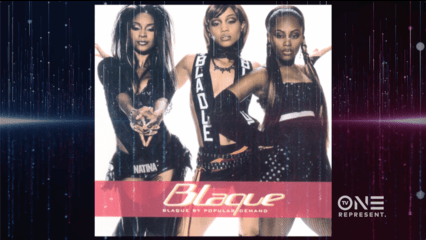Photo by: Tommaso Boddi/Getty Images
From the beginning stages of Black cinema, it has always been one of the culture’s pivotal forms of art.
From the works of the revolutionary Oscar Micheaux, who is credited as the first Black filmmaker, Spike Lee, Melvin, and Mario Van Peebles, to Jordan Peele these legendary filmmakers, directors, and producers have all contributed to how African Americans were and continue to be represented on the big screen.
The late Melvin Van Peebles advanced the blaxploitation subgenre and broke down boundaries for Black filmmakers.
Because of his work as an independent film director, he was a tough act to follow, but his son Mario Van Peebles stepped and followed in his father’s shoes.
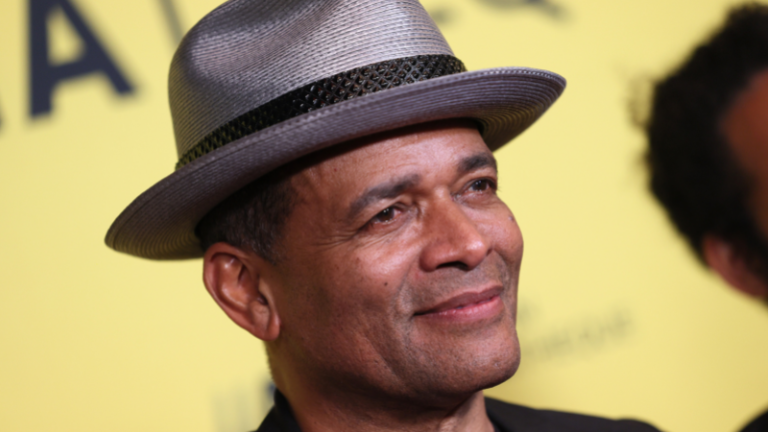
Photo by: David Livingston/WireImage
In Melvin’s most well-known movie, Sweet Sweetback’s Baadassss Song, a family production, Melvin, and Mario were actors in the iconic film.
Mario directed the biographical drama Baadassss! in 2003 as an homage to his father’s smash film released in 1971.
The film is a love letter to his father and describes the difficulties Melvin faced in getting his films produced and distributed.
In the movie, Mario, who portrayed a younger version of his father, metaphorically “walked a mile in his shoes.”
On an upcoming episode of TV One’s Uncensored, we are honored to celebrate the renowned director and actor Mario Van Peebles!
Baadasssss! (2003)
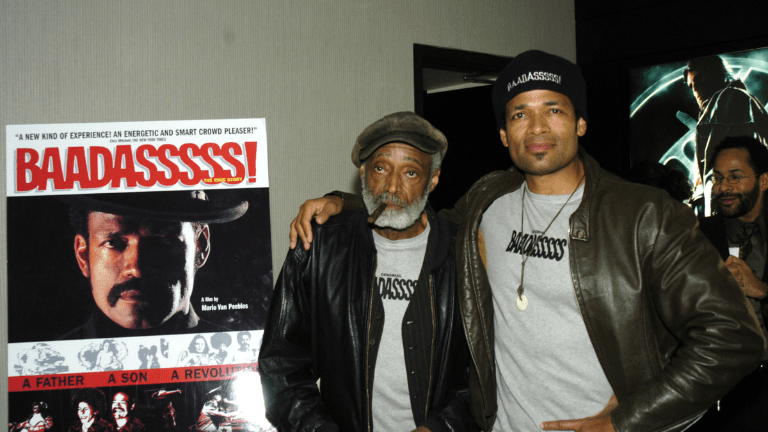
Photo by: Carley Margolis/FilmMagic
The 2003 film Baadasssss! is one of the most prolific films to be dedicated to a parent, who paved the way in the industry.
In 1970, director Melvin Van Peebles (portrayed by Mario) had some Herculean obstacles when deciding the direction of his career after directing a French film Story of a Three-Day Pass, and later a Hollywood comedy Watermelon Man that was successful at film festivals and commercially.
When he hears Melvin talking about making a movie about a real street brother that will include all the faces that Norman Rockwell never painted — the story of a runaway black man he will call Sweet Sweetback’s Baadassss Song — Melvin’s diligent agent Saul Rubinek begins to worry that he has lost touch with reality.
Melvin decides to play both the main role, a runaway from the white establishment, and the director of the movie once a diverse ensemble has been cast.
He chooses to fund the movie himself after several anticipated backers pull out.
The movie also stars Khleo Thomas, starring as a young Mario Van Peebles, Terry Crews as a security guard, Paul Rodriguez as the cameraman, Ossie Davis as Melvin’s father, Nia Long as his patient wife, Joy Bryant as his voluptuous secretary, and T.K. Carter as Bill Cosby, the comedian who always has money when it’s needed.
Baadasssss! will be a fan favorite because the uncertainty, disputes, disappointments, pressure, and joys of the creative process are all explored by Mario Van Peebles.
When playing his father, Mario does not downplay any of this driven man’s weaknesses. However, in the end, we find ourselves rooting for Van Peebles, who is adamant about creating a movie that his audience will treasure and value for its honesty.
New Jack City (1991)
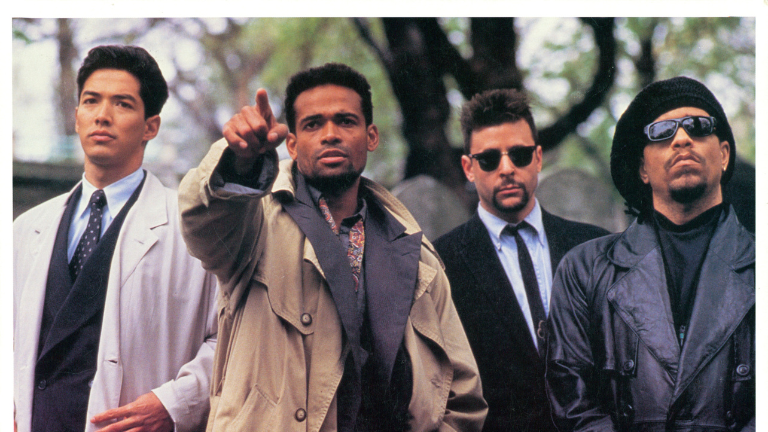
Photo by: United Artists/Getty Images
This 1991 classic will forever reign supreme in Black cinema!
The anti-drug movie New Jack City that Mario Van Peebles not only starred in, but also directed centers on the drug war that is being waged in the Black community.
The film is centered around the brutal mobster Nino Brown, (portrayed by Wesley Snipes) and his drug dealing crew called the Cash Money Brothers, who sells a new crack derivative. Nino is up against two undercover police officers named Nick Paretti (played by Judd Nelson) and Scotty Appleton (played by Ice-T) and the leader of the undercover operation Stone played by Van Peebles.
Stone, Paretti, and Appleton try to collect evidence against Nino using Pookie, a reformed informant played by Chris Rock. Pookie makes himself known after relapsing and gets killed.
Appleton and Paretti swear to destroy Nino and his drug empire. Nino has finally made it to the courtroom. When it appears as if Nino will only perform the barest of duties, an older man part of the drug-riddled Harlem neighborhood shoots him while shouting, “Idolator!”
Earlier this year, Mario Van Peebles explained just how this film helped others overcome their drug addiction.
“We made that victim Chris Rock, who so took you in that we deglamorized the f–k out of crack, man,” the iconic director/actor stated.
Peebles aimed to have his audience “emotionally connect” with the crack addict character, Pookie.
Which is something new that Peebles brought to the table, as we haven’t seen before in drug lord centered films.
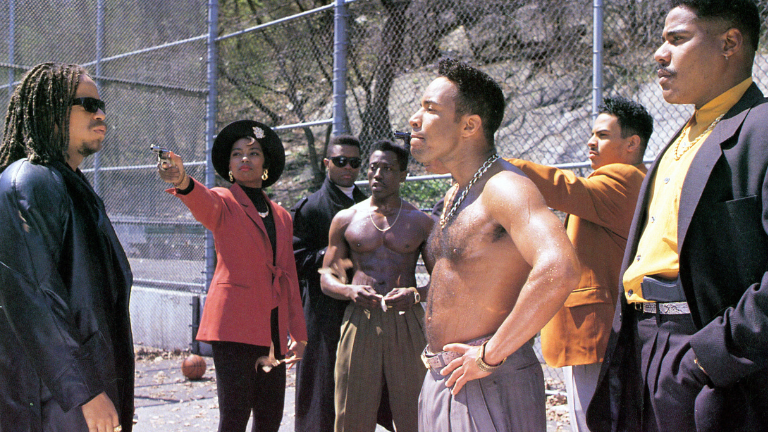
Photo by: United Artists/Getty Images
“You know, ‘Scarface,’ Tony Montana, it’s still a little aspirational sniffing mountains of coke … but there is no way in ‘New Jack City’ when you see that alleyway scene to say, ‘You know, this looks like a real good idea.’ Nothing sexy about it at all.,” the 65-year-old exclaimed. “We showed ‘New Jack City,’ and kids stood up and said, ‘Just say no, motherf–ka.’”
New Jack City will forever be a classic not only to Black cinema, but the film industry overall.
Posse (1993)
Underneath the militarism, colonialism, and crony capitalism of Mario Van Peebles’ 1993 Western, which is rowdy yet earnest, this film uncovers some white-supremacist brutality that Peebles illustrates through the film’s showcase of violence but also brings consciousness to this western film.
And this what makes Posse a classic western film!
When Black troops are forced to fight on the front lines during the Spanish-American War in Cuba in 1898, the action begins. A ruthless colonel (played by Billy Zane) pursues them, but several of them—along with one white soldier, played by Stephen Baldwin—escape to New Orleans with a trove of looted treasure.
What makes Posse such a great film isn’t just about how Peebles uncovered the white supremacy-based violence, but he chose to combat it with the use of the Black veterans (Charles Lane, Tom Lister, Jr., and Tone Loc) as they battle their way to Freemanville, an all-Black community founded by Jesse Lee (Van Peebles), whose father was slain by the KKK.
We truly enjoyed watching not only how Jesse chooses to fight a brave battle to protect the community from ruthless businessmen, but he simultaneously sought proper retribution for the murder of his father.
As the audience, we watched Jesse’s clouded memory become unlocked and was used brilliantly as a catalyst to retell this great story with ferocious intensity and unsparing violence.
We applaud Peebles’ tactic of diving deep within the characters as a director to showcase the preparations and bravery that lives within the veterans. Their bravery plays a critical role to their survival in this specific world.
How can this not be on our top-five list?!
Panther (1995)
The Mario Van Peebles-directed film Panther chronicles the rise and fall of a radical black movement that captured the nation’s interest in the 1960s.
The Black Panthers served a historical function by creating the image of a militant, armed self-defense political party as an alternative to Martin Luther King Jr.’s nonviolent strategy.
Panther does a commendable job of evoking the enthusiasm and idealism of the party’s early years.
We find that the use of the fictional-based narrator named Judge (played by Kadeem Hardison) helps narrate the story as well.
Throughout the film, we see how the use of the character Judge helps give audience members some context we didn’t necessarily knew beforehand. For example, Judge shed some insight that suggest that Huey P. Newton (played by Marcus Chong) essentially conjured up the political party in a coffee shop.
The opening moments of the movie are a realistic period reconstruction of how the Panthers became well-known through charitable endeavors (they fed thousands of children from their storefront centers) and astute media sleight-of-hand. And we appreciate that Peebles took the time to highlight the good deeds that the controversial political party has done for the Black community, instead of focusing solely on painting a picture that helps push the narrative that the political party was radical, defiant, and downright criminal.
This 1995 film spins a compelling tale of the narrative that we haven’t seen when discussing the Black Panthers Party.
Redemption Road (2010)
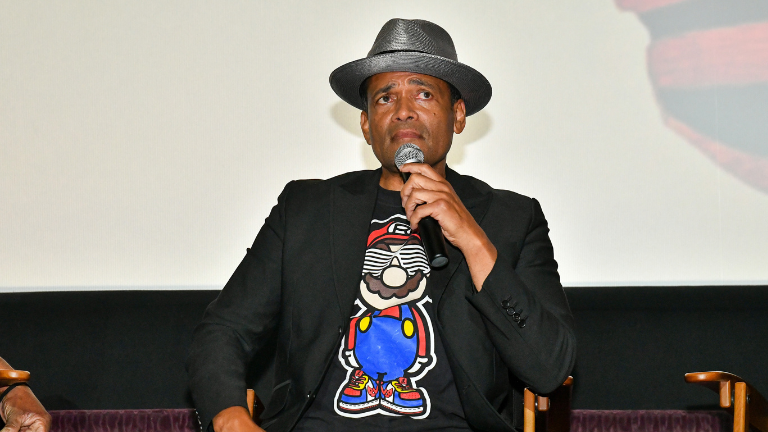
Photo by: Jerod Harris/Getty Images
Redemption Road is a story that we’ve truly enjoyed seeing Mario Van Peebles tell through his phenomenal directing skills!
The story of a young guy in need of a mentor and an elderly man in need of forgiveness is told in the plainly well-known but emotionally satisfying way.
And not only did we applaud the incredible performance of the late Michael Clarke Duncan, but we give a standing ovation to Peebles for his ability to tell any and every story with such conviction as we see with his role as the film’s director!
Redemption Road can be enjoyed by all walks of life as the theme of two strangers travel a difficult road of salvation together in a film that everyone can relate to.
As we watch the main character Jefferson Bailey (played by Morgan Simpson) unwillingly decision to travel with kind stranger named Augy (played by Duncan) on a long trip to Huntsville, Alabama, after just escaping a beating from a furious debtor (played by Luke Perry), we see the multilayers of both characters throughout their road trip.
Although we loved seeing the character Augy being a kind stranger, we also were hooked to seeing how he wasn’t a “Black savior” character.
Although Augy stated that all he is doing is assisting Bailey in obtaining a family inheritance, we got to see that Augy has other, even more, commendable goals in mind. And with Peebles’ directing this story’s plot isn’t predictable in the slightest.
As stated previously, Redemption Road avoids the “magic Negro” cliché of a saintly African American benefactor. Instead, Redemption Road portrays Augy as a complex, guilt-ridden character whose concern for Bailey is genuine but whose need for retribution is a more compelling driving force.
What we appreciate most about this film is that Peebles’ methods of SHOWING and not telling the film’s audience this element as the director, which some similar films fall victim to.
What makes Duncan’s performance so lovely is his affable ability to subtly communicate the profound grief that lies beneath Augy’s powerful bonhomie.
Redemption Road conveys generosity of spirit throughout without ever seeming sappy.
Looking back at Peebles’ career, it is apparent that he possesses not only the skillset of being a phenomenal director, and actor, but he knows and understands how to work with everyone that is a part of each project in various ways to help each film’s story as best as possible.
Be sure to catch the latest episode of Uncensored on Sunday, October 30th at 10P/9C!
Like TV One on Facebook and be sure to follow us on Instagram and Twitter.


